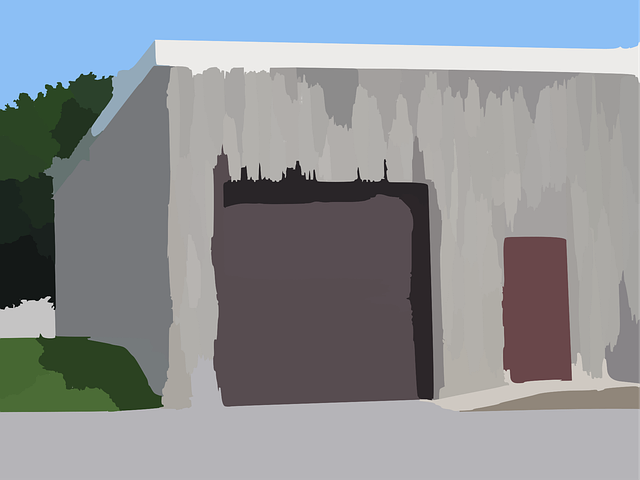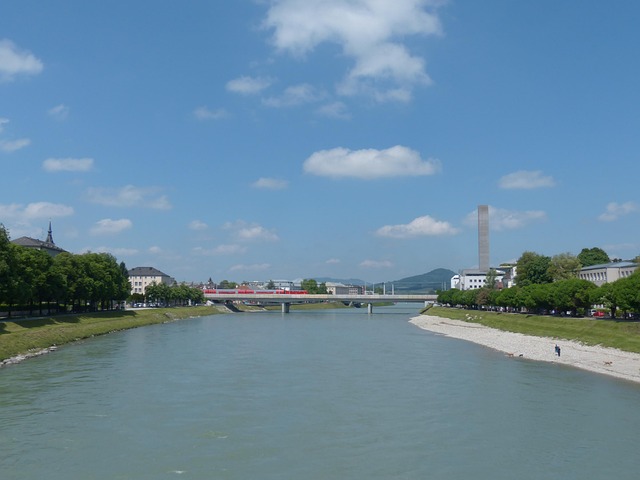Modular electric boiler systems offer a clean and efficient heating alternative, with precise temperature control and smart connectivity. Their scalable design suits both new construction and retrofits, reducing energy consumption compared to traditional gas or oil systems. Real-world implementations demonstrate their versatility for residential and commercial use, aligning with sustainability goals and potentially lowering long-term costs.
“Discover the future of heating solutions with modular electric boilers—a scalable and efficient alternative. This comprehensive guide explores how these innovative systems adapt to growing energy demands, offering a flexible and eco-friendly approach. From understanding the basics to examining successful real-world implementations, we delve into the benefits and key components that make electric boilers an optimal choice for expanding heating requirements. Optimize your space, reduce costs, and embrace sustainable warmth.”
- Understanding Modular Electric Boiler Systems
- Benefits of Scalability in Heating Solutions
- How Electric Boilers Adapt to Growing Needs
- Key Components for Efficient Expansion
- Case Studies: Successful Implementational Strategies
Understanding Modular Electric Boiler Systems

Modular electric boiler systems represent a groundbreaking approach to home heating, offering a scalable and flexible solution for residential or commercial spaces. Unlike traditional central heating systems that rely on fossil fuels, these innovative boilers utilize electricity as their primary energy source, leading to significant advantages in terms of energy efficiency and environmental impact. Each modular unit is designed to provide precise heat output, allowing for customized distribution across various zones within a building.
This technology enables users to adapt to changing heating requirements effortlessly. For instance, during peak seasons or special events requiring additional warmth, more modules can be easily integrated into the system. Conversely, when energy consumption needs to be reduced, units can be disconnected or set at lower power levels. This versatility makes modular electric boilers an attractive option for smart and sustainable electric heating systems, ensuring comfortable indoor environments while promoting responsible energy usage.
Benefits of Scalability in Heating Solutions

In today’s world, where energy efficiency and sustainability are at the forefront of home and building management, scalability in heating solutions is more important than ever. Electric boilers, specifically designed to be modular and adaptable, offer a revolutionary approach to meeting expanding heating requirements. This flexibility allows for seamless integration into both new construction projects and retrofits, ensuring that residential or commercial spaces can efficiently manage their thermal needs as they grow.
Unlike traditional boiler systems, electric heating technology provides a clean and efficient alternative with electric central heating or electric space heating capabilities. Residential electric boilers, being scalable, can easily adapt to changes in energy demands, making them an ideal choice for eco-conscious homeowners and businesses. This adaptability not only simplifies the process of expanding but also reduces costs and carbon footprints associated with traditional HVAC systems, ensuring a more sustainable future for electric heating systems.
How Electric Boilers Adapt to Growing Needs

Electric boilers have evolved to become highly adaptable and efficient solutions for heating requirements, especially as demands grow. Their modular design allows them to scale up or down to meet specific needs, making them ideal for various applications, from residential electric boilers to larger-scale commercial and industrial uses. This flexibility is particularly beneficial for businesses and homeowners looking to implement energy-efficient heating systems, such as electric central heating or electric HVAC systems.
The adaptability of electric heating technology extends beyond simple scalability. These boilers also offer clean heating systems that produce minimal emissions, contributing to a greener environment. Whether it’s for electric space heating in smaller spaces or powerful boiler systems capable of heating entire buildings, the versatility of these appliances ensures they remain at the forefront of modern home heating boilers while offering a viable alternative to traditional gas or oil-fired systems.
Key Components for Efficient Expansion

The key components of a modular electric boiler system play a pivotal role in its ability to scale and meet expanding heating requirements efficiently. These include advanced electric heating elements, precise temperature control mechanisms, and smart connectivity features. Electric heating systems, renowned for their energy efficiency, power these boilers, ensuring optimal performance while reducing energy consumption compared to traditional gas or oil-fired central heating systems.
Furthermore, the integration of modern control systems allows for seamless adjustment to varying demands, making residential electric boilers highly versatile. This technology enables users to fine-tune temperature settings and monitor energy usage, promoting a more sustainable approach to home heating. As a result, electric HVAC systems offer not only a clean heating solution but also economic benefits, particularly with the rising emphasis on eco-friendly and energy-efficient space heating solutions.
Case Studies: Successful Implementational Strategies

In the realm of sustainable and efficient home heating solutions, numerous successful implementations of modular electric boiler systems have emerged as case studies worth examining. These innovative setups showcase the versatility and scalability of electric heating systems in meeting expanding residential heating requirements. For instance, in urban areas grappling with space constraints, the integration of compact, wall-mounted residential electric boilers has proven effective. This strategy not only enhances energy efficiency but also simplifies system maintenance, making it an ideal solution for modern living spaces.
Moreover, these case studies highlight the adaptability of modular boiler systems to larger-scale applications. In commercial settings, for example, a strategic deployment of electric central heating units can cater to the heating needs of entire buildings, promoting clean and eco-friendly energy efficient heating. This approach underscores the potential of electric HVAC (heating, ventilation, and air conditioning) systems as a viable alternative to traditional boiler setups, offering both environmental benefits and long-term cost savings.
Modular electric boiler systems offer a flexible and efficient solution for managing expanding heating requirements. Their scalability, as highlighted in this article, allows for seamless integration and adaptation to meet growing needs without compromising performance or efficiency. By leveraging key components and successful implementational strategies, as seen in case studies, these systems prove to be a reliable and sustainable choice for various applications. Electric boilers, with their adaptability and environmental benefits, are poised to revolutionize heating solutions in the digital era.
